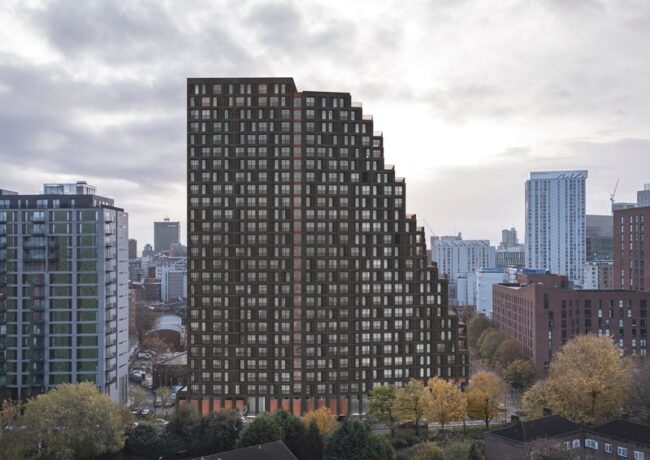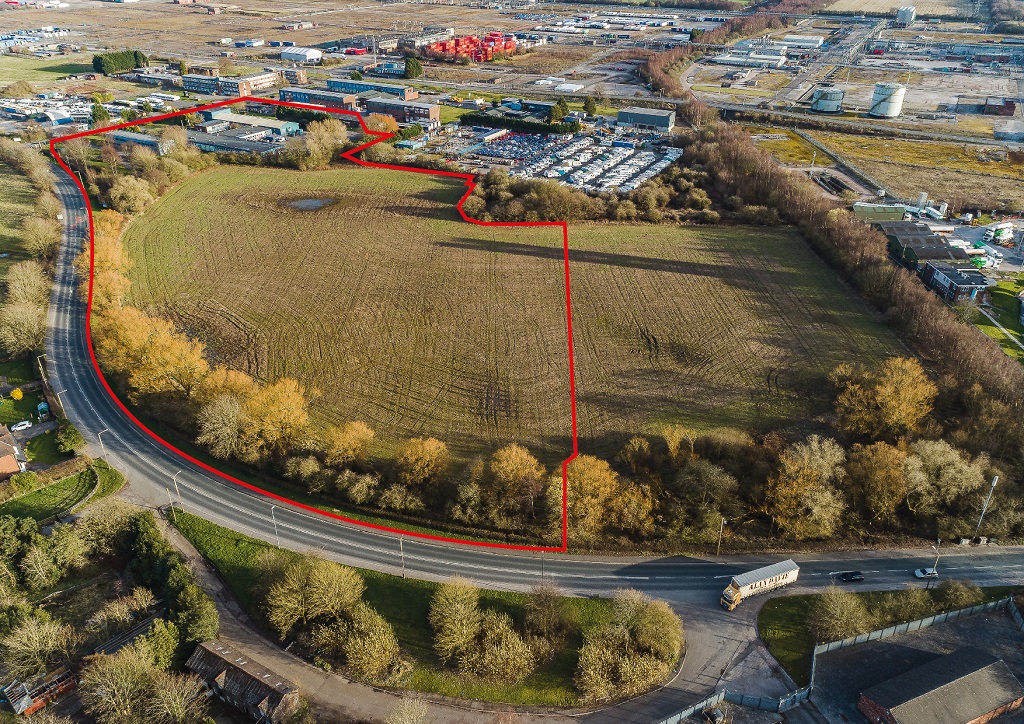Commentary
COMMENT | Manchester’s great need for affordable housing
 Outside Manchester’s city centre, the need for affordable housing is great, writes Lucy Worrall, housing partner at Anthony Collins Solicitors.
Outside Manchester’s city centre, the need for affordable housing is great, writes Lucy Worrall, housing partner at Anthony Collins Solicitors.
This month I celebrate 20 years in the city. I moved here to start my job as a trainee solicitor and I am proud to still call it my home – but there have been some unfavourable news stories for the region recently.
The bigger picture
The first ever GDP figures released for the UK regions revealed a contraction in the North West for the last quarter of 2018, with a drop of 0.7% and the North West being the only region where GDP fell.
This is against the backdrop of the Government confirming it is commissioning a review into whether and how HS2 should proceed. Large projects around stations in Crewe, South Manchester and Manchester Piccadilly are dependent on HS2 going ahead, as undoubtedly will the route between Manchester and Leeds.
Over the last few years I have also seen several housing associations alter plans for their new developments of affordable housing based on HS2 going ahead. No doubt these schemes would have to be reconsidered and reworked should it not be progressed, with additional funds and resources spent in doing so.
Housing funding challenges
More specific to the housing sector have been the reports on the Ministry of Housing, Communities & Local Government’s formula that decides how funding for housing is allocated and how it puts the North at a significant disadvantage in obtaining funding from the Housing Infrastructure Fund.
It is reported that 80% of the funds will go to areas that can demonstrate the highest affordability pressure, but many of these areas are in the south of the country and therefore other areas, including Manchester will lose out.
There is much criticism about the methodology used to allocate funding to enable the delivery of affordable housing projects. Housing associations are constantly looking for new and increasingly innovative ways to develop new housing, which will undoubtedly continue.
While there are reports on how the property market in the south of the country is slowing, our housing association clients tell us that it is very much business as usual in Manchester and the surrounding region, with associations having ambitious development plans that are not slowing. We are also seeing an increasing number of joint venture led developments in the North West, together with more traditional land-led and land-inclusive transactions.
The future prosperity of the city has challenges – but I believe with the right people working together to fight Manchester’s corner, we can deliver the housing the city and the wider region desperately needs.
- Lucy Worrall is partner and housing specialist at Anthony Collins Solicitors





I believe the social construct of brown and green field building regulations should be scrapped. It really shows the nation’s gap between rich and poor as in essence it keeps poor people in cities and ghetto s while the villages and clean air are for the prosperous . …discuss !!
By Carl Gray
I agree to a point, Carl, but it’s more nuanced than that. The first sentence is revealing: “Outside Manchester’s city centre, the need for affordable housing is great”
Plenty of homes have been built in Manchester, in its city centre. None of them have been affordable. While other places have come under unrelenting pressure, a blind eye (at best) has been turned by the government to an effort to secure a city centre of exclusive privilege. Local housing only available to Class A/B workers, and others monied enough to be deemed suitable for entry. “Come to Manchester! You don’t have to mix with the locals!” may as well have been the inward investment motto for the past 20 years.
There is plenty of room left IN Manchester city centre for affordable housing, and there always was. But it’s testament to the power that comes with privilege that it will never get built.
By Mike
To the substance of the story, I say this: Manchester has had everything it has asked for, and more. If the North wests GDP is dropping, then I told you so. Parochial empire building, letting one major city rot while its neighbour gets to write its own ticket, deliberate displacement of economic activity, dark propaganda campaigns, and disproportionate levels of spending will, obviously, lead to one ending.
That it’s not even been enough to replace the GDP lost its telling, and foreboding. The review of HS2 means nothing versus the damage it’s already wrought.
As for more special pleading, one major city council’s budget this year is written with a tone of foreboding, while its neighbouring major city is slapping itself on the back and proclaiming what a good place it’s in despite cuts in funding.
You want more from the common purse now? Fund it yourselves!
By Mike
They can build as many houses as they like, but what’s the point when people on benefits, disabled and low waged can’t afford to pay the rents? Housing Benefit is capped, but landlords, both social and private can charge whatever they like, desperate people are paying ridiculous amounts in rents for places unfit to live in. They don’t dare complain, because they’ll find themselves homeless and living in some budget hotel, hostel with no prospects of getting out. There’s empty properties all over, because no one can afford the rents! Building more houses won’t help if people can’t afford the rents! The simple solution is limlt rents to the level that Housing Benefits will pay/top up.
By Fazanah Murjahn
The substance of the story is that Liverpool has had more regeneration funding thrown at it than anywhere else in the country, Mike. Government largesse has poured into that city amounting to many multi billions of pounds over the years. Liverpool / Merseyside has benefitted from every single piece of regional and urban policy since its inception some 90 years ago and the city ranks at or near the top of the list of the highest recipient of funds of every policy and programme going. Where would it be without the loop and link underground lines, funded in the 70s without the sort of business case criteria modern day transport investments must show, and the bedrock of modern day Merseyrail, itself the most heavily subsidised system of its kind in the country. The crowning jewel of this government largesse is the Pierhead – Albert Dock complex built from the ground up with government money and responsible for a fair heft of the city’s entire “GDP”.
If Liverpool / Merseyside has struggled, its not for the want of government action, Mike. Blame can be placed squarely at the feet of local actors.
By Myers
Manchester has done a great job of creating the right environment for building more market rate housing, admittedly at the expense of diverse neighbourhoods. That’s only half the problem, and it’s not clear to me that this country, never mind Manchester, ever met the affordable housing need without council housing (done right).
By Rich X
Yes, Greater Manchester needs more affordable housing, but affordable by whom? All the family sized houses recently built in Sale are over £400k. When I moved to Sale in 1992 my house cost the equivalent of 4 times my annual salary. Today I was told by my neighbour that our houses had been valued at 14 times that salary or 11 times my current salary. In other words, I could not afford to buy my house now. The houses that are being built on greenbelt land between Sale, Altrincham and Warburton are mostly unaffordable for people on average wages and new residents will have to use cars to travel to work as there is inadequate public transport planned alongside these new homes and very few new jobs to which residents could walk or cycle to within a reasonable time. We, and the politicians who represent us, need to rethink the definition of “affordable” when it relates to the cost of a home for those at or just above the minimum wage.
By R Julian
Can anyone give a definition of affordable – a decent wage these days is what say £30k – times that by 3 for two people and you have a lending figure of £180,000. Given as the earlier responder said (houses in Sale at average at £300k) then who can afford them – it is only affordable to people of a certain wealth income – that is my version of “affordable”.
By AY
It is possible to build affordable homes, we do it in a factory. They are eco friendly minimise the social and economic disruption associated with all development works and can be delivered to site ready for occupation. The real problem is the availability and cost of land at prices that enable homes to be sold at affordable prices, and the fact that funding mechanisms are so wedded to the historic methods of building homes on site. If land, including public sector land is sold to the highest bidder then market prices will be set accordingly. If lenders who have a vested interest in maintaining the current funding models continue to finance projects in the way they always have then true innovation in the delivery of affordable housing will always be squeezed out of the market because they represent a challenge to the profits of all who benefit from the existing financial structures. Until such issues are addressed in any meaningful way innovation in the delivery of affordable homes for all will always be a niche and minor part of the housing market. Profit vested interest and a near cartel supported by state aid that boosts the major house builders profits from government backed funding schemes that benefit the shareholders of plc developers all act to reduce the scope for delivery of market change and affordable homes for all
By Russet Developments